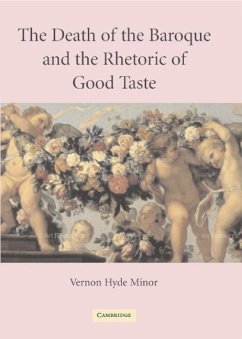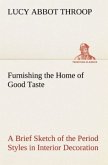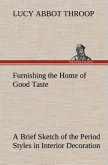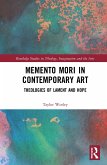In late seventeenth- and early eighteenth-century Rome, a rhetorical war raged among intellectuals in the attack and defense of language, literature, and the visual arts. Death of the Baroque and the Rhetoric of Good Taste examines the cultural upheaval that accompanied attacks on the baroque predilection for ornament, extended visual metaphors, grandiloquence, and mystical rapture. This book describes the waning days of the baroque and ends with an analysis of the Parrhasian Grove, the Arcadian garden on the slopes of Rome's Janiculum Hill.
Hinweis: Dieser Artikel kann nur an eine deutsche Lieferadresse ausgeliefert werden.
Hinweis: Dieser Artikel kann nur an eine deutsche Lieferadresse ausgeliefert werden.









